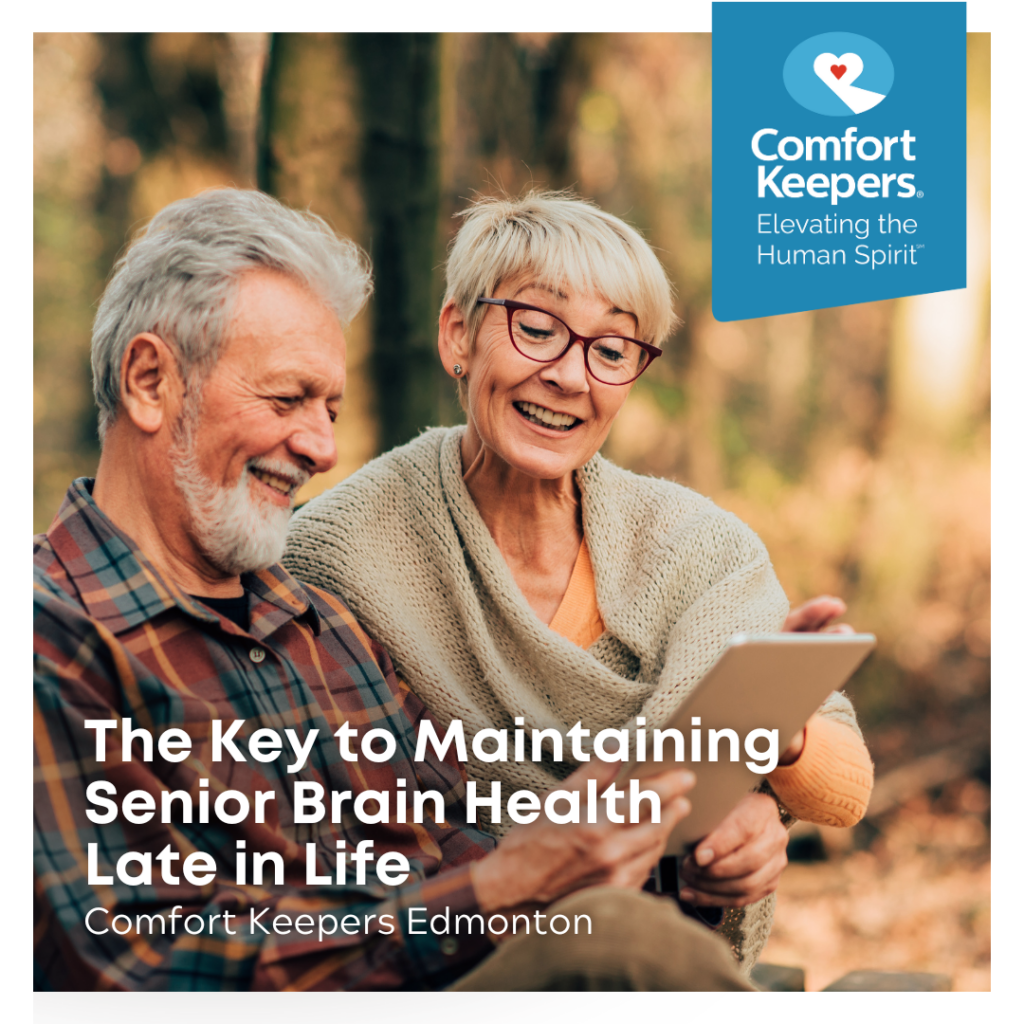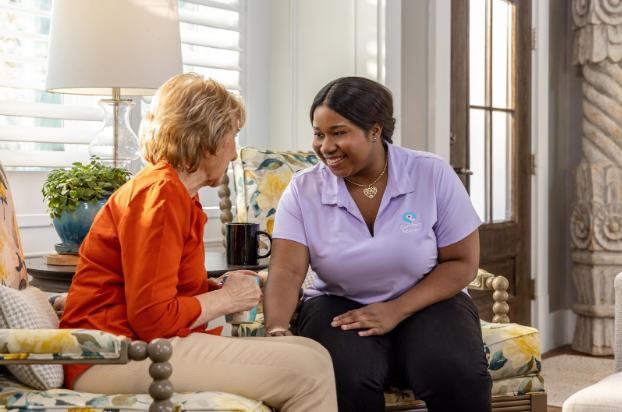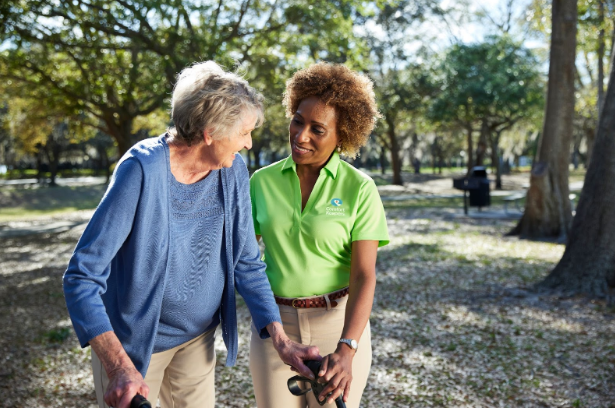The Key to Maintaining Senior Brain Health Late in Life
Alzheimer's and Dementia Care | September 24, 2024

What Every Senior in Edmonton, AB, Needs to Know About Optimal Brain Health and Function
Senior Brain Health | When it comes to exploring the brain, with each breakthrough the scientific community makes, new unprecedented questions arise. While this is certainly positive it allows research to become more focused and illuminates that the brain is vastly and endlessly complex.
Senior Brain Health FAST FACT: Even though the human brain represents only two percent of the body’s weight, it receives nearly a quarter of the body’s total blood supply.
Despite all of its mysteries, one thing we do know is that the brain – like all of our organs – does indeed age. As we get older, the brain’s overall volume gradually decreases (at approximately 5% per decade after the age of 40), causing nerve cells to lose certain connections. Reduction in blood flow and certain cardiovascular conditions can add to this as well.
For seniors, these factors may lead to occasional forgetfulness or lapses in memory. Significant memory loss, however, is not a normal part of aging and may be indicative of Alzheimer’s disease or other forms of dementia.
Seniors who are experiencing memory loss or have had problems with language skills, perception, or other mental functions must address these concerns with a physician.
Senior Brain Health: Four Ways to Keep the Senior Brain Healthy
Research suggests that there are several strategies seniors can adopt to help reduce the risk of cognitive decline. These may also benefit overall health. Encourage your aging loved ones to incorporate the following practices into their daily routine. However, before starting any new exercise program or dietary changes, ensure they consult with a physician and dietitian.
#1. Stimulation:
In the last few years, there have been numerous research studies in the area of neurological plasticity, which refers to the brain’s ability to structurally modify in response to new experiences. This “re-wiring” of nerve cells is actually what is at the center of most cognitive and physical rehabilitation practices.
However, it essentially serves the same function for those looking to keep their brains healthy, and it can be done simply by learning new skills or keeping the brain regularly “exercised” through puzzles or games.
Many suggest that seniors enroll in a class or other form of organized learning – which will help not only in developing new skills but also in cultivating socialization.
#2. Exercise Regularly:
While it’s not exactly news that exercise is good for the body, it may come as a surprise to some that regular exercise also has quite an impact on mental health. Physical activity improves cardiovascular health, which in turn helps supply the brain with blood.
It also helps in developing new/increasing existing neural connections (see neurological plasticity above), allowing the brain to be more adaptive. Research suggests that regular exercise can also significantly reduce mental stress.
Some seniors may choose to join a class with close friends for exercise, but it can just as easily be done at home. The key is to ensure that the heart rate is elevated through moderate activity, for at least 20-30 minutes every day.
#3. Watch Your Diet:
The food we consume has a direct effect on our mental wellbeing and health. To operate at its optimum level, the brain requires fuel in the form of vitamins, minerals, and other essential nutrients.
If your current diet consists primarily of salt, sugar, fat, and refined/processed foods, consider switching things around. Studies show that diets consisting of fruits, vegetables, whole grains, sources of B vitamins, and lean meats can significantly reduce anxiety levels and even the risk of depression.
#4. Stay Social:
Although it’s not entirely understood how socialization bolsters brain health, studies show that a correlation between having strong social connections and longer life expectancy does exist. Interaction, whether it be with friends, family members, or next-door neighbours, appears to reduce the risk of cognitive decline and improve overall mental well-being.
This is especially evident in those who volunteer their time to help others. Try reaching out through organizations, community centers, or schools to see how you can help make a positive impact on others – and the health of your brain.
Senior Brain Health Best Practices for Optimal Brain Function
What unifies all of these best practices for maintaining brain health? The key, as countless scientific studies would suggest, is engagement.
Comfort Keepers® Edmonton Can Help!
If your loved ones are working to improve their mental well-being and want to incorporate the aforementioned best practices into their lifestyle, we can help.
Comfort Keepers® Edmonton is Proud to Offer a Wide Range of Home Senior Care Services
Our trained caregivers will ensure your loved one is comfortable, independent and safe in their home. On top of that, we will also aim to enhance their overall health, quality of life and general happiness.
Top-Notch Home Healthcare for Seniors in Edmonton, Alberta
Comfort Keepers of Edmonton offers a wider range of senior care services. We offer retirement care, respite care, senior care, companionship care, end-of-life care, post-surgery care, palliative care, personal care, and senior living transition services. If you are concerned about the health and well-being of your aging loved ones we can help with 24-hour care and more!
Helping Seniors Age-in-Place with Companionship Care and Interactive Caregiving™
Empathetic care starts in the heart and allows us to meet our client’s needs. Our trained caregivers are selected with one specific quality in mind, empathy. We strive to stimulate our clients emotionally, mentally and socially, thus enhancing their overall quality of life.
Our Interactive Caregiving™ provides a system of care that addresses companionship, safety, nutrition, mind, body, and activities of daily living (ADLs). The system increases seniors’ sense of well-being, independence and companionship by focusing on Senior Mind, Senior Body, Senior Nutrition, and Senior Safety.
Affordable and Client-Directed Homecare is Available for Qualifying Albertans
Comfort Keepers® Edmonton is an Approved Service Provider for the Client Directed Homecare Invoicing (CDHCI) Program Offered by Alberta Health Services.
What is the Client Directed Home Care Invoicing Program (CDHCI)?
CDHCI is a great program provided by Alberta Health Services (AHS), allowing clients to choose an approved agency like, Comfort Keepers Edmonton for Personal Care, Respite Care and Homemaking needs. The chosen agency can then bill AHS directly for services rendered for approved hours through Alberta Blue Cross. Read more about the program HERE.
Accredited Home Care Edmonton
Comfort Keepers® Edmonton was awarded the “Accredited with Exemplary Standing” seal by Accreditation Canada. This honour demonstrates Comfort Keepers’ commitment to offering safe, high-quality home care to its senior clients in Edmonton, AB.
To learn more about senior in-home care in Edmonton, contact the Comfort Keepers® office. Our service territory includes Edmonton, Devon, Sherwood Park, Stony Plain and surrounding areas, contact the Comfort Keepers Edmonton office at 780-465-4665.
References:
- Harvard Health Publications. “12 Ways to Keep Your Brain Young.” Web. 2006.
- Everyday Health. “How to Stay Sharp As You Age” by Krisha McCoy. Web. 2017.
- Brain Facts. “What We Know – and Don’t Know – About Aging.” Web. 2012.
- National Institute on Aging. “The Aging Brain.” Web. 2017.
Individualized Home Care Options
Long-Term Home Care, 24 Hour Home Care & Short Term Care Options Customized for You







